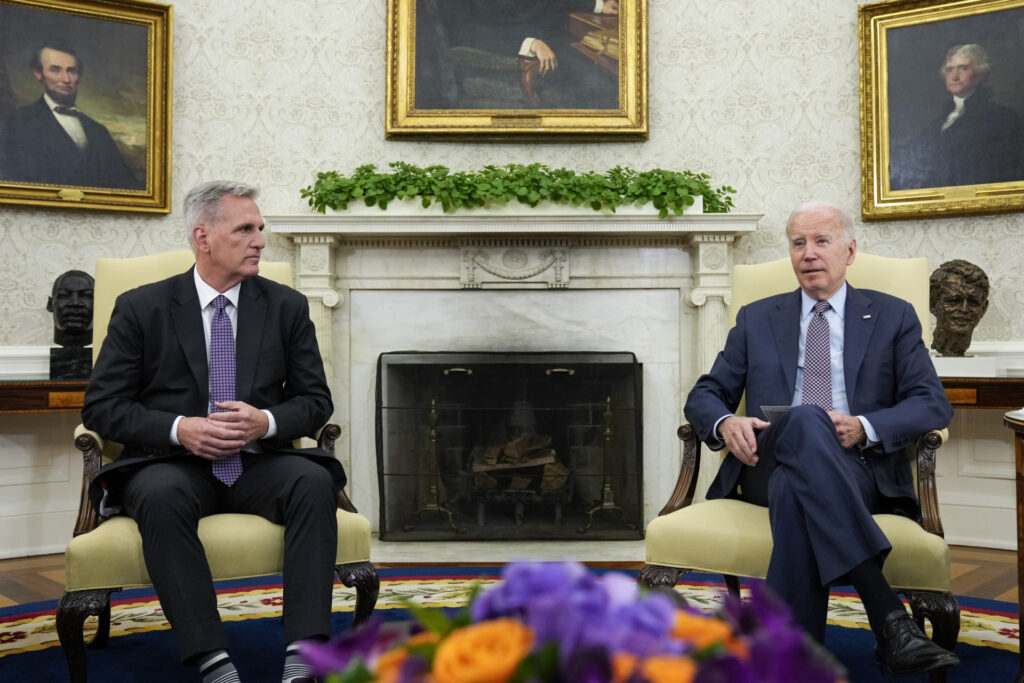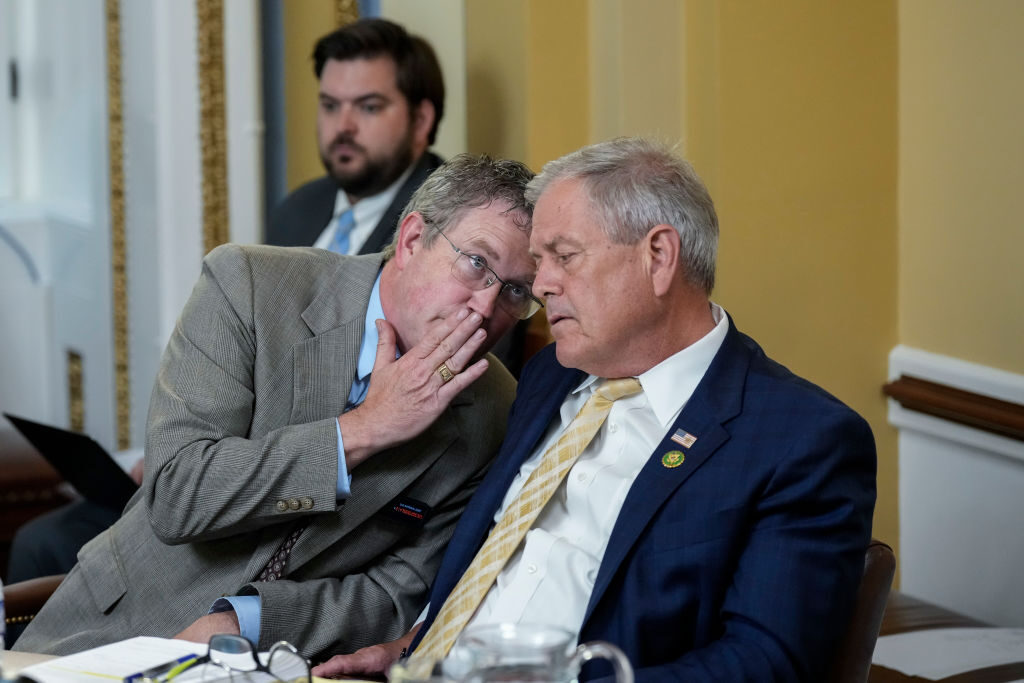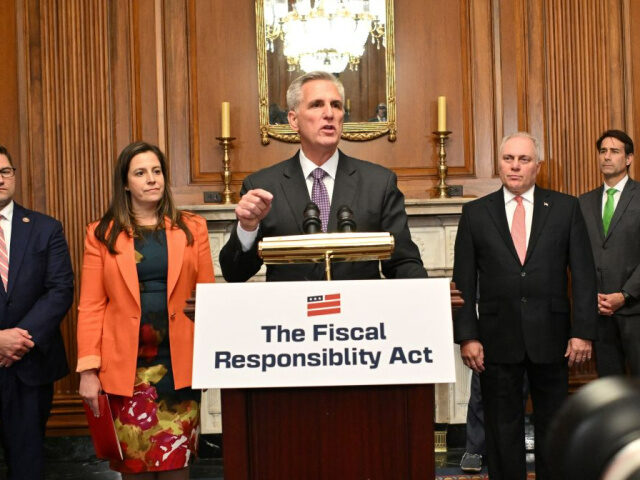The House voted by an overwhelming majority Wednesday to increase the debt limit in exchange for Republican-backed measures to rein in spending.
The bill, called the “Fiscal Responsibility Act,” passed 314 to 117, and will now head to the Democrat-controlled Senate for consideration.
149 Republicans and 165 Democrats voted in favor of the legislation, a wide majority from both parties.
The high-stakes vote, which summoned members back to Washington during Memorial Day recess week, had presented Republican leaders with their most difficult whipping challenge yet given the party’s general aversion to raising the nation’s borrowing limit.
The bill increases the limit, which currently stands at $31 trillion, through January 2025 while implementing Republicans’ desired spending caps and other provisions. It comes after Treasury Secretary Janet Yellen warned a debt default could occur as early as June 5.
“Today, the House passed the largest deficit reduction package in American history,” House Speaker Kevin McCarthy (R-CA) and the rest of GOP leadership said in a joint statement. “Taxpayers will save an estimated $2.1 trillion, and Congress will spend less money next year than this year for the first time in a decade — without adding new taxes on families.”
In the leadup to Wednesday, McCarthy and President Joe Biden engaged in days of intense negotiations during which Biden sought to hike the debt ceiling while handing McCarthy as few concessions as possible.

President Joe Biden meets with House Speaker Kevin McCarthy to discuss the debt limit at the White House, May 22, 2023, in Washington. (AP Photo/Alex Brandon)
For months prior to that, Biden refused to negotiate with the Republican-controlled House at all. But in the face of the GOP passing its own debt increase proposal in April and repeated warnings from the Treasury Department of a looming early-summer potential default, the president ultimately caved.
Asked at a press conference this week about his vows not to compromise on a debt ceiling increase, Biden said, “If you want to try to make it look like I made some compromise of the debt ceiling, I didn’t. I made a compromise on the budget.”
He urged the resulting agreement to pass through the House and Senate so that he could sign it in time for June 5.
Republican leaders have characterized the deal as a win after leveraging their narrow majority to secure spending caps for the next two years, recissions of unspent covid money, expanded work requirements for welfare recipients, the resuming of student loan payments, among other items.
McCarthy called it “the largest savings in American history” in a floor speech ahead of the vote, saying it would combat the “runaway spending” that has become a defining feature of the Biden administration.
“We produced a bill that in divided government takes a step toward smaller government, less regulation, more economic growth, and more take-home pay, and unlike previous speakers, you don’t have to pass the bill to find out what’s in it,” McCarthy said.
The speaker had fulfilled a commitment established during the speaker race in January to allow members 72 hours to read the 99-page bill before casting their votes on it.
Although two-thirds of the Republican conference ultimately supported the bill, GOP leaders were up against fierce opposition from within the party after some argued the legislation was insufficient.
“I don’t want to create a new baseline in terms of spending in this country,” Rep. Harriet Hageman (R-WY) told Breitbart News. “I also don’t like the fact that we’re just simply suspending the debt through a certain date rather than by a specific amount,” she added, noting she was following the will of her constituents in opposing the bill.
House Freedom Caucus members were some of the most vocal opponents of the bill and urged Republicans to reject it, arguing it paled in comparison to the GOP-preferred bill that had passed the House in April, though no Democrats supported that bill.
One caucus member, Rep. Ralph Norman (R-SC), was asked by a reporter if he would rather default than vote for the McCarthy-Biden deal, to which he replied, “I’m willing to take that risk because the country is in deep financial trouble.”
“Default’s not going to happen,” Norman added. “Your presumption is we’re going to default. They’re not. [Democrats] can’t take that risk. It’s Biden that left the bargaining table for 97 days for God’s sake.”

Rep. Thomas Massie speaks to Rep. Ralph Norman during a meeting of the House Rules Committee to consider the Fiscal Responsibility Act of 2023 at the U.S. Capitol May 30, 2023 in Washington, DC. (Drew Angerer/Getty Images)
Some hardline veteran conservatives, such as Reps. Jim Jordan (R-OH), Thomas Massie (R-KY), Tom McClintock (R-CA), and others, however, were uncharacteristically supportive of the bill because of a certain provision that they said would force historic and substantive changes to government spending habits.
The section in the bill, proposed by Massie, would push the House to fund the government through 12 appropriation bills rather than one omnibus bill later in the year, which Massie said would help “restore regular order.”
“If we want to control the overall amount of spending … then that’s our opportunity,” Massie said.
Write to Ashley Oliver at aoliver@breitbart.com. Follow her on Twitter at @asholiver.

COMMENTS
Please let us know if you're having issues with commenting.